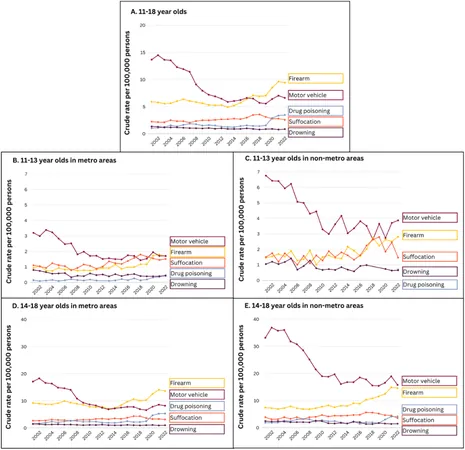
Hormone Therapy for Menopause: Which Method Boosts Memory More?
2025-08-30
Author: Daniel
Unlocking the Secrets of Menopause and Memory
Menopause marks a significant transition in a woman's life, often accompanied by a host of unwelcome symptoms like hot flashes, night sweats, and that dreaded brain fog. But what if hormone therapy could offer more than just relief from these discomforts?
The Game-Changing Study on Estradiol
A groundbreaking study has shed light on estradiol, a potent form of estrogen used in hormone therapy, revealing its potential to enhance cognition and memory. Interestingly, the method of administration—whether through patches or pills—leaves a striking imprint on its effectiveness.
Patches vs. Pills: What Doubles Your Memory Power?
The research, published in the esteemed journal Neurology, unfolds a fascinating dichotomy: women using transdermal estradiol (via patches or gels) demonstrated significant improvements in episodic memory—essentially, their ability to recall past experiences. Meanwhile, those on oral estradiol fared better in prospective memory, proving adept at remembering future tasks like appointments or taking medication.
A Closer Look at the Research
Analyzing data from over 7,200 post-menopausal women who participated in the Canadian Longitudinal Study on Aging, the researchers found that cognitive function had a strong link to the timing of menopause. The average participant had experienced menopause at around 50.5 years old and was 60.5 years at the study's inception.
Three key aspects of cognitive function were assessed: episodic memory, prospective memory, and executive function. While an earlier onset of menopause correlated with lower performance across these areas, the hormone therapy results were telling.
The Findings: Who Benefits More?
Only 6% of the women were on estradiol therapy at the time, split between 4% using transdermal forms and 2% on oral estradiol. Notably, those using transdermal therapy showcased superior episodic memory, while those on oral therapy scored higher in prospective memory. However, neither form showed any tangible improvement in executive function.
Experts Weigh In
Dr. Anand Singh, a Consultant Gynaecologist, noted that the lack of improvement in executive function could be due to the complexity of brain networks involved in this area, which might be less influenced by estrogen levels than memory-related regions.
Liisa A. M. Galea, the study's author, suggested that the route of hormone administration plays a crucial role. Oral estradiol undergoes a transformation in the liver that complicates its effectiveness, converting it into estrone, a less potent form. Transdermal estradiol, bypassing this metabolic pathway, might therefore interact more effectively with brain areas crucial for memory.
The Bottom Line: Make Informed Choices
As this research highlights the intricate relationship between hormone therapy and cognitive health, it becomes paramount for women to engage in thorough discussions with their healthcare providers regarding their treatment options during menopause. Understanding the differences in how hormone patches and pills impact memory could empower women to optimize their hormonal health and memory capabilities.



 Brasil (PT)
Brasil (PT)
 Canada (EN)
Canada (EN)
 Chile (ES)
Chile (ES)
 Česko (CS)
Česko (CS)
 대한민국 (KO)
대한민국 (KO)
 España (ES)
España (ES)
 France (FR)
France (FR)
 Hong Kong (EN)
Hong Kong (EN)
 Italia (IT)
Italia (IT)
 日本 (JA)
日本 (JA)
 Magyarország (HU)
Magyarország (HU)
 Norge (NO)
Norge (NO)
 Polska (PL)
Polska (PL)
 Schweiz (DE)
Schweiz (DE)
 Singapore (EN)
Singapore (EN)
 Sverige (SV)
Sverige (SV)
 Suomi (FI)
Suomi (FI)
 Türkiye (TR)
Türkiye (TR)
 الإمارات العربية المتحدة (AR)
الإمارات العربية المتحدة (AR)